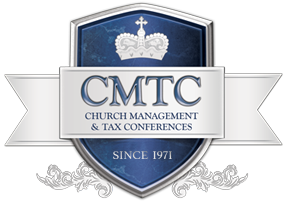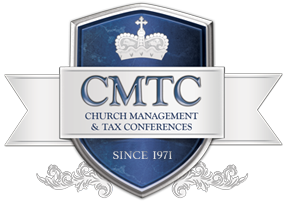Is the Church’s Exempt Status in Jeopardy?
At a recent Church and Clergy Tax Conference, the Pastor seemed shocked when I told him that he could not have a separate account in his Church that solely benefited him over and above his normal salary. He felt as if the Church “owed” it to him, after all it was their “responsibility” to ensure he was blessed abundantly for his labor in the ministry.
The only problem was that what he felt he deserved, was a violation of Private Inurement statutes with which Churches and non-profits are required to comply.
Private Inurement
The Private Inurement clause states that for Churches to continue to enjoy their non-profit status they must meet at least two separate tests.
- No person or persons may own the Church, receive funds from it or have a right to take property from it.
This does not mean that the Pastor and employees cannot be paid. However, it does mean that the payroll cannot be excessive in relation to other organizations.
It also means that the Pastor cannot borrow equipment or supplies from the Church. For example, the Pastor must not have the Church lawn mower in his garage, unless he is living in a Church-owned parsonage.
- The Church must operate “exclusively” for its particular exempt purpose and is not to devote itself to benefitting private individuals.
The Church is not allowed to loan Church equipment or supplies to members of the congregation, nor to those outside of the Church membership.
The van driver for the Church must not have that Church van parked at his private residence.
This does not mean that there may not be some private benefit. In the charitable arena, some private benefit may be unavoidable. The secret is to know when “enough is enough.”
To Whom Does it Apply
The statute suggests that inurement only involves “private shareholders or individuals.” However, tax courts and the Internal Revenue Service have interpreted this to include everyone that has a personal and/or private interest in the activities of the Church.
Although most inurement violations involve those in “control” positions within the Church, inurement may involve someone who is not an insider.
For inurement purposes, the terms “shareholder” and “individual” covers the following groups:
- Anyone with the authority to decide to make payments of the Church’s money
- A family member of such person
- A substantial contributor to the Church who may possibly influence Church decisions
- Anyone affiliated with any of the above
These four categories may easily include everyone in the Church.
What Happens When Inurement Occurs
Basically there are four options the IRS may choose when violations occur. They may:
- Do nothing
This is the best for the Church.
- Impose monetary penalties
- Revoke the Church’s non-profit status
Should this occur donations would probably be greatly reduced or may even become non-existent.
- Possible file criminal charges
Let Us Help You Before It Is too Late
Chitwood & Chitwood has been helping Churches and Clergy with IRS compliance issues for more than 78 years. Our record of success speaks volumes.
It would behoove every Pastor and Church Board Member to attend a Church and Clergy Tax Conference in the city nearest them at the earliest possible date. In these seminars, we will reveal what the IRS is looking for, and how to get compliant in order to avoid IRS penalties and possible prosecution.
DO NOT DELAY! Visit us at www.cmtc.org or call us at 800-344-0076 to register. You will be glad you did.
For Chitwood & Chitwood this is “A Ministry – Not a Job.”

